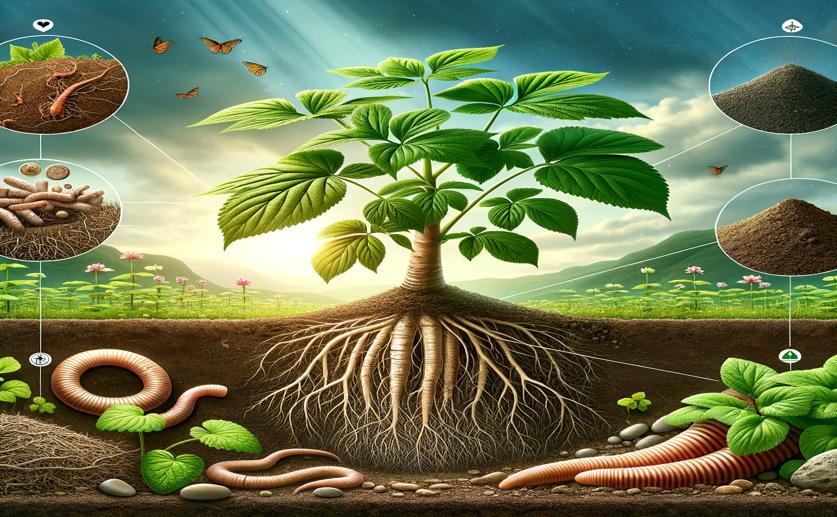
Improving Soil Health for Better Ginseng Growth
Jenn Hoskins
23rd March, 2024

Image Source: Natural Science News, 2024
Key Findings
- In a study from Changchun University, soil treatments RSD and CSF both improved soil nutrients
- RSD specifically boosted beneficial fungi and reduced harmful ones, aiding plant health
- RSD also enhanced plant defense enzymes and reduced stress indicators more than CSF
AgricultureSustainabilityPlant Science
References
Main Study
1) Facilitating Effects of Reductive Soil Disinfestation on Soil Health and Physiological Properties of Panax ginseng.
Published 21st March, 2024
https://doi.org/10.1007/s00248-024-02349-4
Related Studies
2) Facilitating effects of the reductive soil disinfestation process combined with Paenibacillus sp. amendment on soil health and physiological properties of Momordica charantia.
3) Effects of Reductive Soil Disinfestation Combined with Liquid-Readily Decomposable Compounds and Solid Plant Residues on the Bacterial Community and Functional Composition.
4) Deciphering the Synergies of Reductive Soil Disinfestation Combined with Biochar and Antagonistic Microbial Inoculation in Cucumber Fusarium Wilt Suppression Through Rhizosphere Microbiota Structure.



 3rd March, 2024 | Jim Crocker
3rd March, 2024 | Jim Crocker